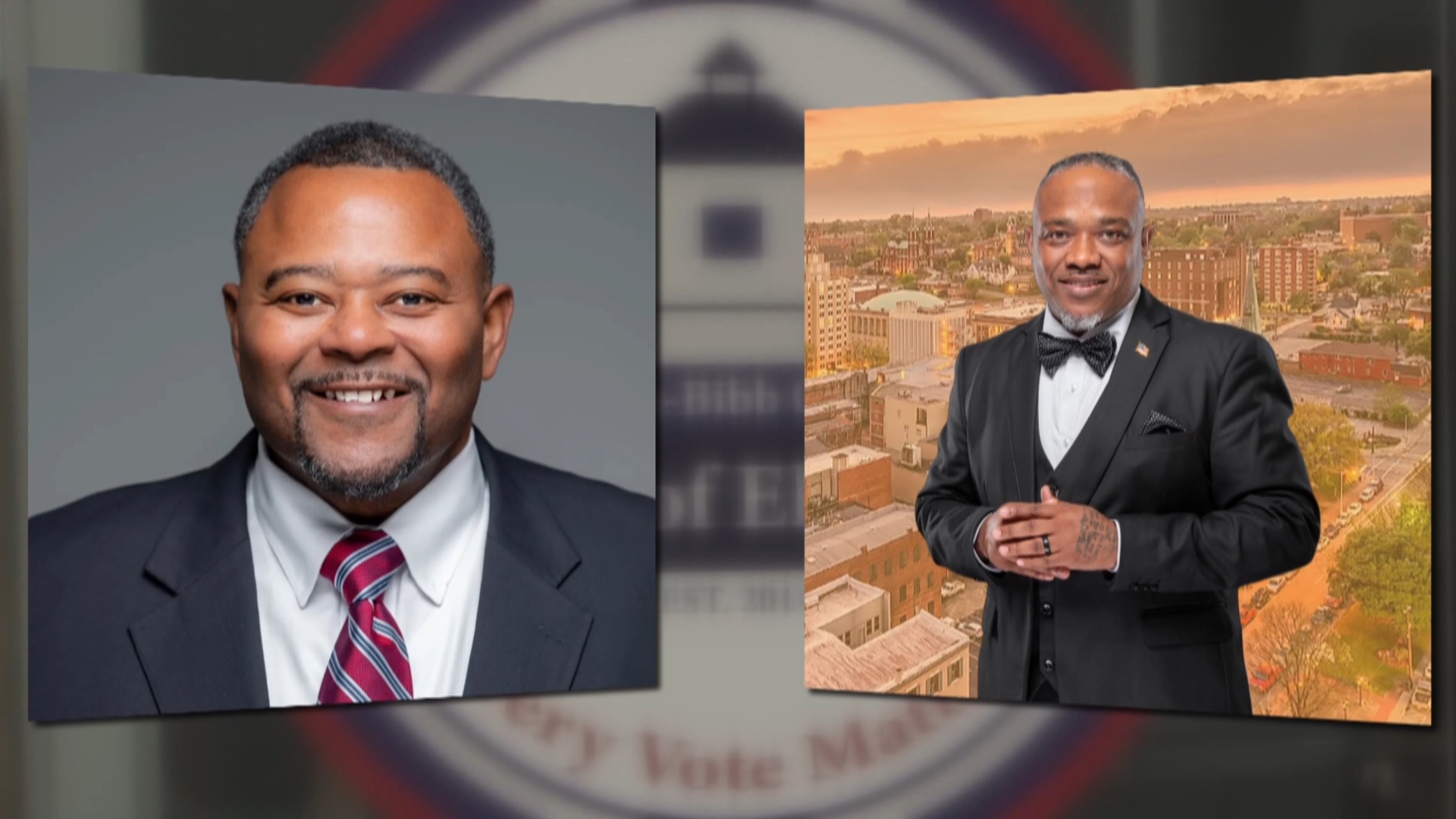MACON, Ga. — A judge sided with the Bibb County Board of Elections and upheld their decision to disqualify two sheriff candidates who did not meet the requirements to be on the ballot.
The decision came after a 1-hour 45-minute hearing on Thursday.
"The board of elections has not acted improperly and exercised unwarranted use of discretion," Judge George Nunn said during the hearing.
The board accused Ron Rodgers and another candidate, Marshall Hughes, of not getting fingerprinted and a background check by the deadline.
The judge said that Hughes and Ron did not meet the requirements needed to run for sheriff.
Rodgers and Hughes filed petitions with the Bibb County Superior Court in April.
"The Elections Board's disqualification of Mr. Rodgers as a candidate solely based on the delayed timing of his fingerprint and background submission unfairly deprived voters of the opportunity to choose their preferred candidate," Rodgers' petition read. "Allowing Mr. Rodgers to stay on the ballot is necessary to ensure that voters have a meaningful choice and the electoral process remains fair and inclusive."
Rodgers and Hughes have been fighting for the past month to remain eligible in the race for Bibb County Sheriff.
On March 15, the Macon-Bibb County Board of Elections voted to challenge Hughes and Rodgers, and they informed the pair of their decision in a letter dated March 20.
Then, on April 10, the Macon-Bibb County Board of Elections voted 3-2 to disqualify Hughes and Rodgers.
Hughes' attorney Joseph Siegelman argued in a 10-page petition that the decision to disqualify Hughes for not getting fingerprinted and a background check by the deadline goes against Georgia case law.
"Respondent's decision was affected by an error of law because it departed from existing case law interpreting the qualification for Sheriff," Siegelman wrote.
Siegelman says that Hughes found out about the fingerprint and background check issue on March 16. Then, two days later, Hughes went to probate court to get fingerprinted.
Under Georgia law, sheriff's candidates have a few additional requirements that other candidates don't have. That includes the fingerprinting and background-check requirements.
In the statute, it says candidates must do this within three business days of the qualification period ending. Both Hughes and Rodgers did not do that, the Board of Election's determined.
In previous court cases, they found that disqualifying a candidate for missing the deadline didn't advance the core goal of the law, and should instead be considered an instruction, not grounds for disqualification.
But the petition also takes aim at staff for the Board of Elections offering different guidance to Hughes than another candidate received. They say one candidate was informed by an employee of the fingerprinting and background requirements.
When Hughes asked Board of Election's Supervisor Thomas Gillon "if there was anything else that Petitioner needed to provide to be qualified," Gillon didn't inform him of the fingerprint requirement.
He says that this was unfair and deprived Hughes of his rights.
"The arbitrary or capricious selection of which candidate(s) to refuse aid is clearly an unwarranted exercise of discretion that prejudiced the substantial rights of [Hughes]," the petition said.
Early voting in the sheriff's race started Monday in Bibb County.

